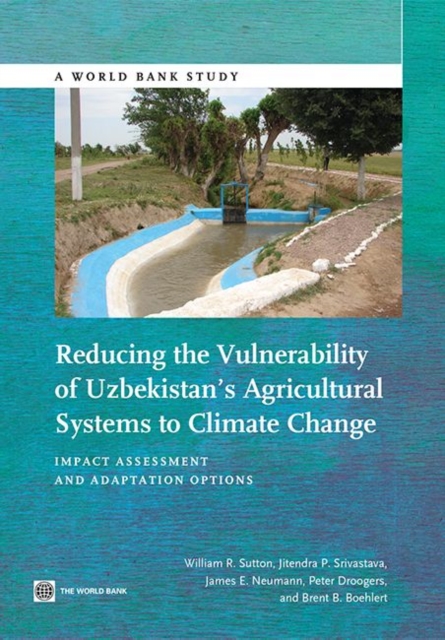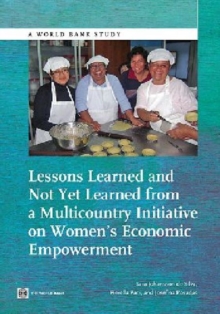
Reducing the vulnerability of Uzbekistan's agricultural systems to climate change : impact assessment and adaptation options Paperback / softback
by William R. Sutton, World Bank
Part of the World Bank studies series
Paperback / softback
Description
Agriculture is one of the most climate-sensitive of all economic sectors.
In many countries, such as in Uzbekistan, the risks of climate change are an immediate and fundamental problem because the majority of the rural population depends either directly or indirectly on agriculture for their livelihoods.
The risks of climate change to agriculture in Uzbekistan cannot be effectively dealt with - and the opportunities cannot be effectively exploited - without a clear plan for aligning agricultural policies with climate change, developing the capabilities of key agricultural institutions, and making needed investments in infrastructure, support services and on-farm improvements.
Developing such a plan ideally involves a combination of high-quality quantitative analysis, consultation with key stakeholders, particularly farmers and local agricultural experts, and investments in both human and physical capital.
The experience of Uzbekistan, highlighted in this work, shows that it is possible to develop a plan to meet these objectives - one that is comprehensive and empirically driven as well as consultative and quick to develop.
The approach of this study is predicated on strong country ownership and participation, and is defined by its emphasis on 'win-win' or 'no regrets' solutions to the multiple challenges posed by climate change for farmers in Uzbekistan.
The solutions are measures that increase resilience to future climate change, boost current productivity despite the greater climate variability already occurring, and limit greenhouse gas emissions.
The study projects impacts of climate change on agriculture across Uzbekistan's three agro-ecological areas through forecast variations in temperature and rainfall patterns so crucial to farming.
It offers a map for navigating the risks and realising the opportunities, outlined through a series of consultations with local farmers.
Information
-
Item not Available
- Format:Paperback / softback
- Pages:142 pages
- Publisher:World Bank Publications
- Publication Date:30/09/2013
- Category:
- ISBN:9781464800009
Information
-
Item not Available
- Format:Paperback / softback
- Pages:142 pages
- Publisher:World Bank Publications
- Publication Date:30/09/2013
- Category:
- ISBN:9781464800009










